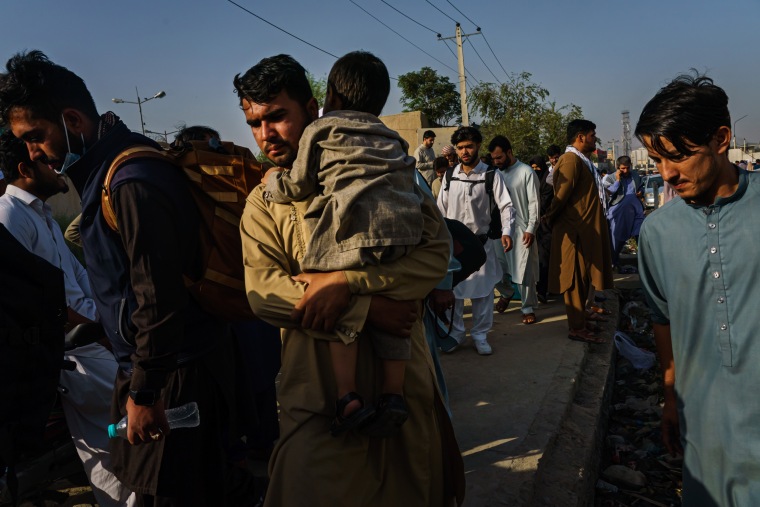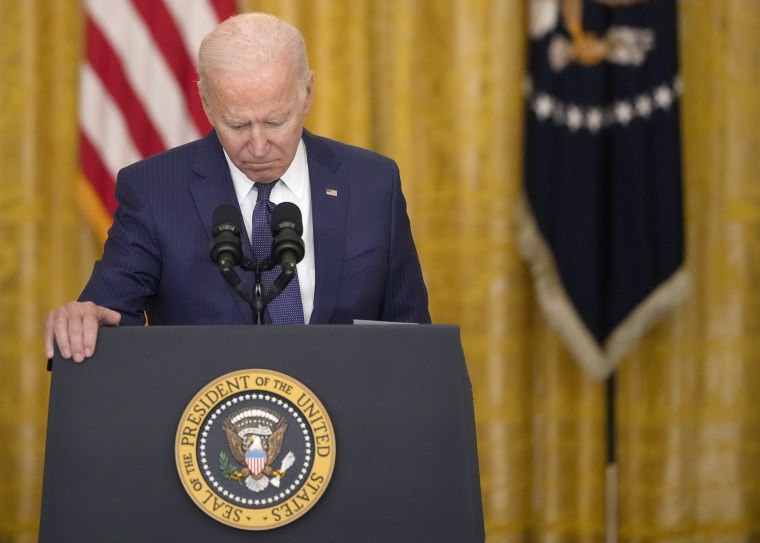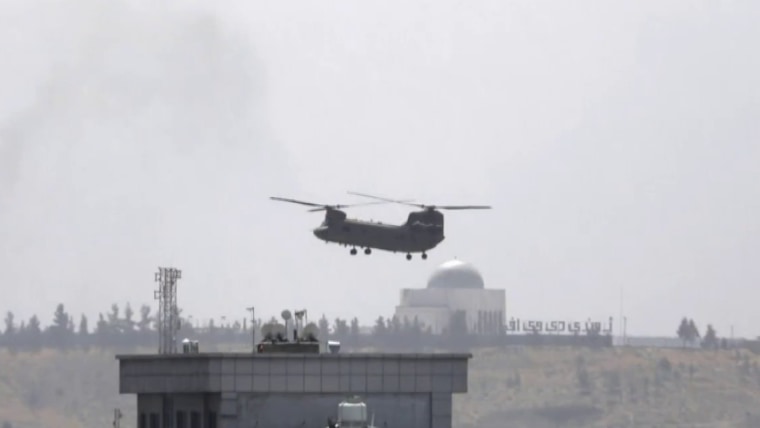Aug. 31, 2021, 12:02 AM CEST
After almost 20 years, a heavy cost of lives, and a price tag of $2.3 trillion, America has exited its longest war.
President Joe Biden oversaw the end of the United States' withdrawal from Afghanistan on Monday, when the last aircraft carrying military personnel left the airport in Kabul. Military officials said the final operation went smoothly, with the cooperation of the Taliban, but many in the U.S. and around the world wondered what had been achieved after such a colossal sacrifice.
The Taliban, toppled by the U.S.-led invasion in 2001, are already back in power, sweeping aside the Washington-backed Afghan government in a remarkably swift offensive.
"The past 17 days have seen our troops execute the largest airlift in US history, evacuating over 120,000 US citizens, citizens of our allies, and Afghan allies of the United States," Biden said in a statement.
"Now, our 20-year military presence in Afghanistan has ended," he said, adding that he would address the nation on Tuesday.
But it may be the Taliban who have the last word.
"Without a doubt, the Taliban are victors," Zabihullah Mujahid, the group's senior official and spokesman, told NBC News on Thursday. "There was no justification for this war."

The militants say they have become less hard-line since the oppressive, militant theocracy of their last regime. But their rapid reinstatement has caused deep anger — from Afghan civilians who now have to live under the militants' yoke, to the friends and families of U.S. service members who gave their lives.
Biden has come under heavy criticism for the way the withdrawal has been handled. That peaked last week when a suicide bomber struck Kabul airport, killing 13 U.S. service members and at least 113 Afghans — a grim coda to a chaotic evacuation effort.
Download the NBC News app for breaking news and politics
The U.S. hit back with a drone strike against what it said was an Islamic State Khorasan group, or ISIS-K, target that posed an "imminent threat" to the airport. It said it was looking into reports the strike also resulted in civilian casualties.
Thousands of desperate Afghans have for weeks mobbed the airport's perimeter, desperate to board flights that offer the promise of a new life in the West. More than 80,000 people have been airlifted, including 6,000 Americans.
But most Afghans who wanted to leave have now watched the final airplanes associated with the official U.S. withdrawal take off from the runway.
'The world has come together'
In a conflict that has spanned four presidents — George W. Bush, Barack Obama, Donald Trump and Biden — around 170,000 people have died, almost 50,000 of them Afghan civilians, per data compiled by Brown University.
That toll includes more than 2,300 U.S. service members and 3,800 American contractors, according to the Pentagon and Brown.
It was a conflict triggered by 9/11, an attack orchestrated by Al Qaeda leader Osama bin Laden while he was given safe haven by the Taliban. Backed by the United Kingdom, Canada and Australia, the U.S.-led invasion was the opening salvo in the "war on terror" that would irrevocably shape U.S. foreign policy and with it the world.
"The attack took place on American soil, but it was an attack on the heart and soul of the civilized world," Bush said in October 2001. "The world has come together to fight a new and different war, the first, and we hope the only one, of the 21st century."
At one point in early 2002, just 6 percent of Americans said the war was a mistake, according to the pollster Gallup. Last month, that had risen to 47 percent.

The U.S. plowed hundreds of billions of dollars attempting to rebuild this failed state: inculcating a democracy, retooling its military and reforming social norms such as allowing girls to be educated and women to be able to work outside the home — something banned by the Taliban.
But the country remained dogged by rampant corruption, something some experts have blamed in part for the U.S.-funded Afghan army's crumbling in the face of the Taliban this month.
And for years, the militants have held onto large swaths of the country. The U.S. has long conceded that vanquishing the militant group entirely would be impossible, even after Obama's "surge" of nearly 100,000 troops in 2009.
Obama formally ended combat operations in 2014, instead pivoting to what the U.S. called a "train, advise and assist" role in which a pared-back force would assist the Afghan army.
Last year, Trump negotiated a deal with the Taliban to withdraw U.S. military personnel by May 1 of this year. After he was inaugurated, Biden said the withdrawal would be completed by the 20th anniversary of the 9/11 terrorist attacks; he later upped the deadline to Aug. 31.



No comments:
Post a Comment